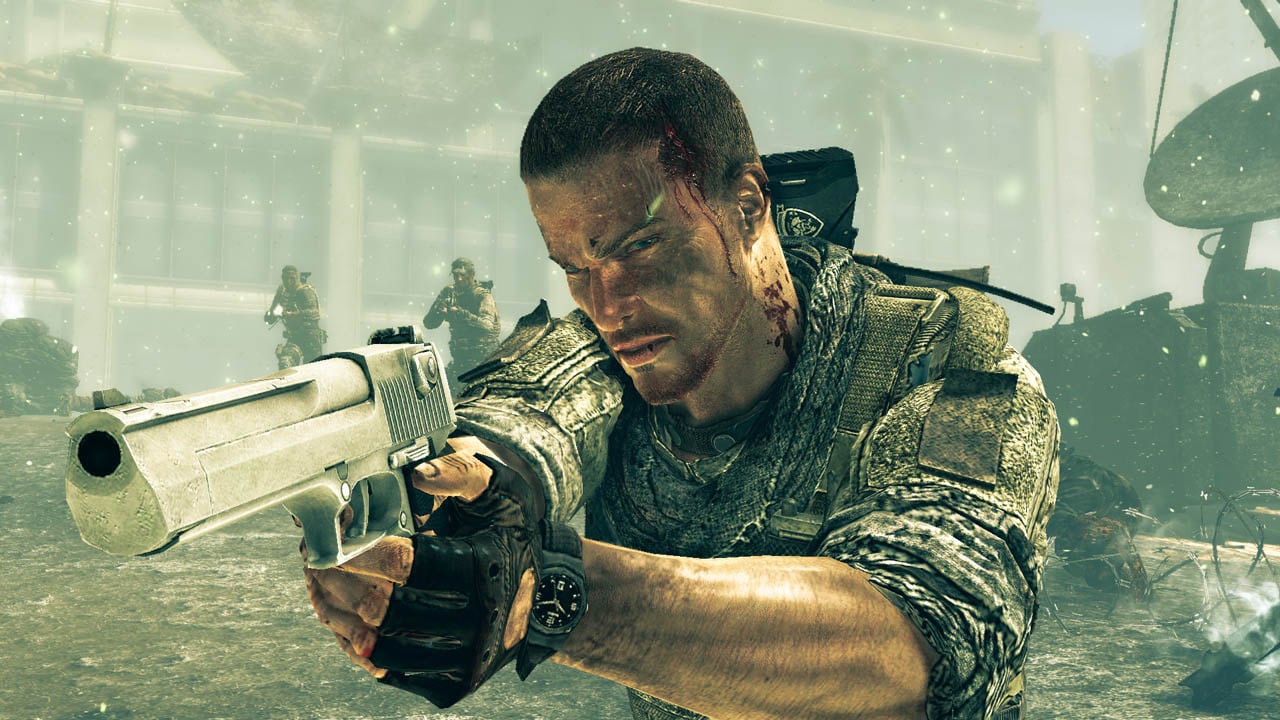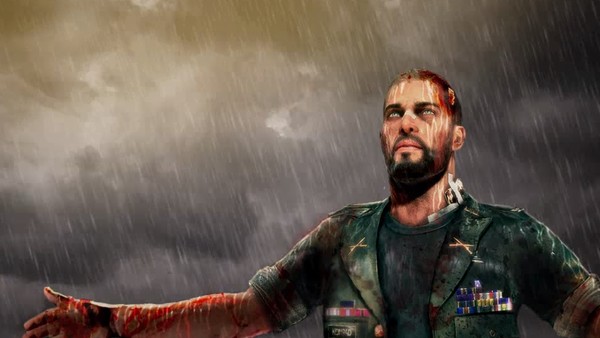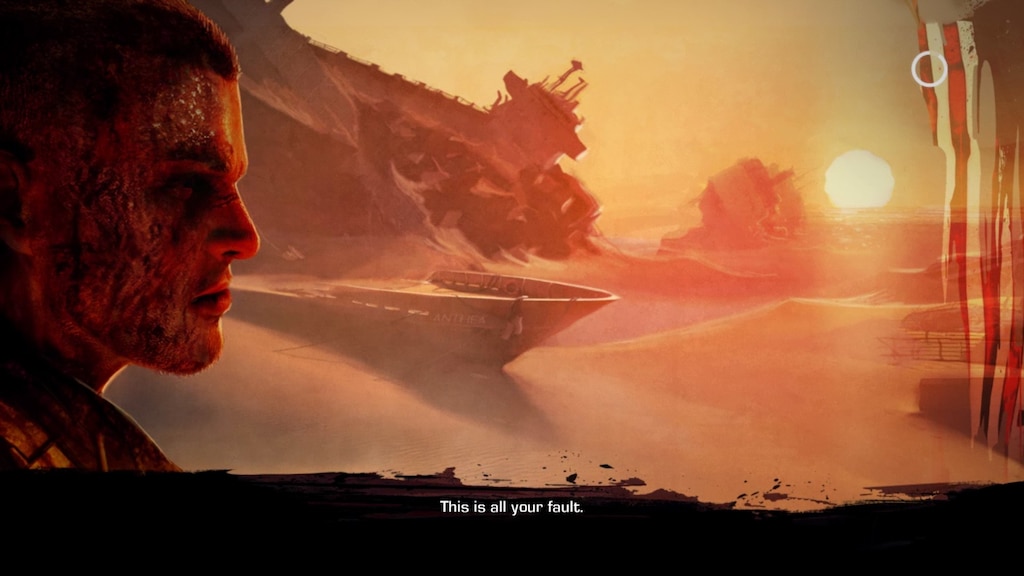- Spec Ops: The Line is not your typical shooter.
- It questions the morality of wartime actions through the protagonist’s actions.
- The game boldly deviates from genre norms and challenges players with uncomfortable truths.
- It offers four different endings that reflect the consequences of player choices, questioning the toll of war.
Spec Ops: The Line, released in 2012, stood out from other military shooters of the time. While many games focused on being realistic and heroic, Spec Ops took a different approach.
Before starting the game, I expected this third-person military shooter to be a typical journey through a war-ravaged Dubai featuring standard squad-based heroics. However, it surprised me with a deep psychological impact, breaking down the typical gung-ho style of the genre and making me reflect on my own complicity.
Unfortunately, the game never achieved commercial success and has recently disappeared from Steam, seemingly heading towards extinction.
Why it matters: Due to poor marketing and commercial failures, Spec Ops: The Line could not stay in the spotlight, but it is a must-play hidden gem. Now delisted from Steam, I imagine it would be hard for people to experience this wonderful game.
Spec Ops: The Line Breaks the Mold
Labeling Spec Ops: The Line as underrated doesn’t quite capture it.
It was a revelation – a subversive masterpiece disguised as a B-movie shooter. Its boldness makes it brilliant, as it dares to deconstruct the power fantasy it initially presents, forcing players to confront the harsh realities of war and the delicate nature of sanity.
Unlike typical shooters, it directly addresses the uncomfortable sides of finding enjoyment in simulated violence. The main character, Captain Martin Walker, serves as a means to question not only the in-game missions but also the player’s involvement in virtual warfare.
Walker’s path is defined by a sequence of choices that result in severe outcomes. His ex-commander, John Konrad, initially seen as a rogue figure, takes on a symbolic villain role.
The disclosure that Konrad was deceased from the start compels Walker to face the fallout of his decisions, demonstrating the theme of continual decision-making and its impact on the protagonist.
The game consistently examines the right and wrong of actions and what follows. The repeated phrase, “You brought this on yourself,” sums up the game’s core idea – the reasons people give for what they do.

Narrative and Design
Spec Ops: The Line truly excels in its storytelling and design. You would think it’s like a typical Call of Duty game with one ending. However, this game’s narrative twists gradually unfold, leading to four distinct endings.
The fact that Captain Walker is grappling with PTSD and hallucinations significantly shifts the player’s perspective, transforming the protagonist into an unreliable anti-hero.
Walt Williams, the game’s writer, skillfully uses subtle details to depict Walker’s deteriorating mental state. Moments like the white phosphorus attack made me question my role as a hero in the game.
It made me think that I made the right choice, only to discover the harsh reality of my actions. The narrative’s brilliance lies in its capacity to compel players to question both their enjoyment of the game and the morality of virtual violence.
Mechanically Competent, Narratively Pioneering
In terms of mechanics, Spec Ops follows the familiar third-person shooter style but sets itself apart with its storytelling skills.
While the gameplay doesn’t revolutionize the genre, the gradual changes in character growth and visual presentation add to a distinctive gaming journey. The game provides a nuanced critique that goes beyond a singular twist moment.
As Captain Walker and his squad traverse Dubai’s challenging terrain, their physical and mental conditions change. The game uses visual signs like bloodstains and torn clothing to depict the impact of their experiences.
Spec Ops: The Line includes many subtle design features that elevate the storytelling experience. Whether it’s Colonel Konrad’s face on billboards, representing Walker’s illusions, or murals symbolizing ignorance towards violence, the game constructs a narrative that becomes clearer with each revisit.
Moreover, loading screens transform to convey messages about the player’s responsibility, strengthening the emotional impact of the story. While it may not introduce groundbreaking mechanics, the game challenges conventional game design and storytelling within the shooter genre.
If you find the gameplay repetitive, I suggest exploring the story through alternative mediums like a cutscene compilation. This can offer a more efficient way to understand the narrative.
The Genius of Spec Ops: The Line
Here’s where Spec Ops: The Line’s genius lies. It doesn’t preach or bombard you with anti-war messages. Instead, it subtly knits them into the gameplay itself. Your actions have consequences, not just scripted events but tangible shifts in the world and Walker’s psyche.
Witnessing the aftermath of your choices, the terrified faces of civilians you’ve accidentally gunned down, and the growing unease in your squad, it all chips away at your heroic persona, leaving you questioning who the real monster is.
The game masterfully manipulates what you anticipate. You anticipate the typical camaraderie, the straightforward division between good and evil. However, Spec Ops: The Line surprises you.
It places you in morally uncertain scenarios, compelling you to make choices that seem wrong from the start. The game doesn’t pass judgment, nor does it absolve you. It merely reflects your actions like a mirror, revealing a soldier on the brink of sanity, where heroism transforms into desperation.
The Ending – Horrors of War
Let’s talk about the ending – a powerful blend of uncertain storytelling and psychological horror.
It compelled me to face the reality of Walker’s deeds, the destructive outcomes of his decisions, and the hazy boundary between the real and imagined. It’s an ending that stayed with me long after the credits rolled, a haunting reminder of the cost of war.
Spec Ops: The Line had its imperfections, but those were minor concerns when weighed against the strength of its narrative. It took risks, deviating from genre norms, and posed uncomfortable questions about violence, heroism, and the cost of war.
But perhaps this was why it remained underrated. Gamers may not have been ready for such a reflective gut punch. It was too dark, too uncomfortable, and too willing to break the mold, but that’s what made it special to me.
Twelve years later, this message and influence remain relevant. In a world growing desensitized to violence, a time when war games celebrate conflict, Spec Ops: The Line stands as a stark reminder of the cost of our actions.
Thank you! Please share your positive feedback. 🔋
How could we improve this post? Please Help us. 😔
Passionate gamer and content creator with vast knowledge of video games, and I enjoy writing content about them. My creativity and ability to think outside the box allow me to approach gaming uniquely. With my dedication to gaming and content creation, I’m constantly exploring new ways to share my passion with others.








